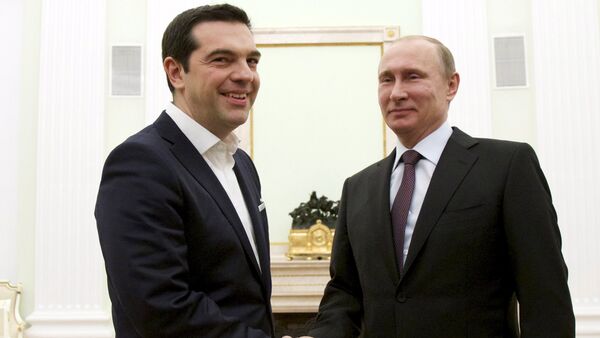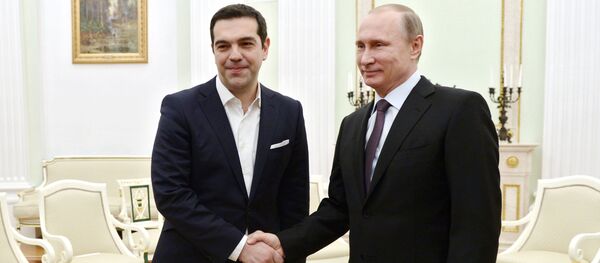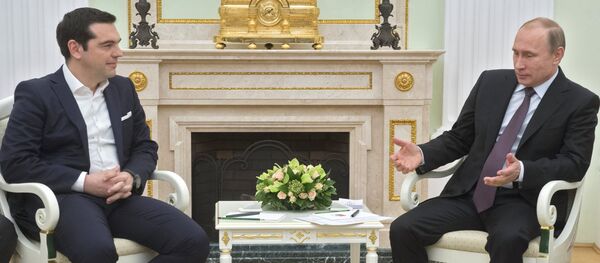Special Relationship
Russia and Greece affirmed their special relationship built on years of historic friendship, and Greece emphasized that it will help both sides capitalize on this by working as an intermediary in reconciling East-West ties and lobbying against the anti-Russian sanctions. To illustrate the qualitative depth of their relations, Putin gifted his guest an historic icon of Saints Nicholas and Spyridon that had previously been looted during the Nazi occupation. In one fell swoop, the Russian President was able to touch upon the two countries’ historic Orthodox roots and shared memory of suffering in World War II.
In Moscow, honoring those who stood up to, and defeated fascism--a true victory of the people. #Greece pic.twitter.com/35V5OSqwBS
— Alexis Tsipras (@tsipras_eu) 8 апреля 2015
Speaking of World War II, Tsipras will be returning to Moscow on 9 May to commemorate the 70th anniversary of the Allied victory, rebuffing American and EU pressure not to and loudly demonstrating that Greece will independently pursue its own sovereign policies.
Infrastructure Investment
Balkan Stream
When Putin referred to a “Turkish Stream” traversing Greek territory, Tsipras clarified that “there will not be any Turkish Stream in the Greek territory but a Greek pipeline…We cannot accept the “Turkish Stream” name, but we consider that the project would improve our relations with Turkey.”
Warmly received by the President & members of Greek expatriate community in Russia--a very heartfelt meeting. #Greece pic.twitter.com/46ba3ocBW8
— Alexis Tsipras (@tsipras_eu) 8 апреля 2015
Earlier today I met with His Holiness Cyril, Patriarch of Moscow and all Russia. #Greece pic.twitter.com/Y0iC0DcEv4
— Alexis Tsipras (@tsipras_eu) 9 апреля 2015







